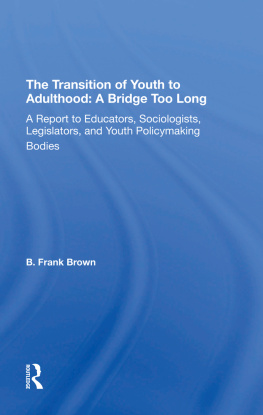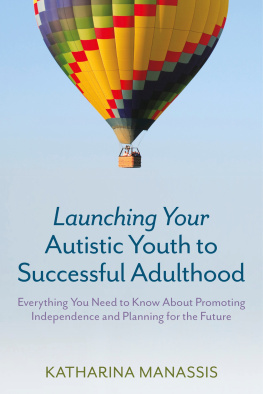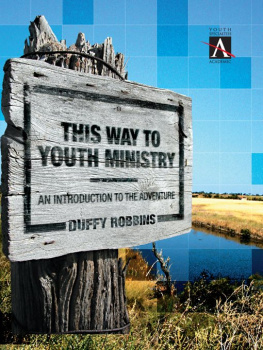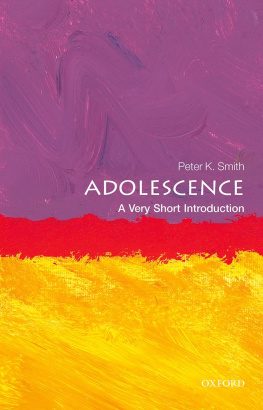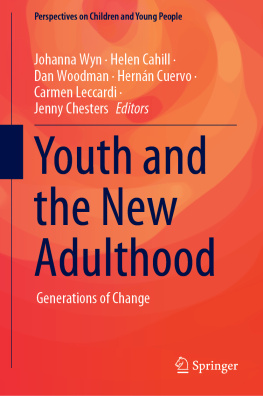LAuberge espagnole
Part romantic comedy, part sitcom, part social drama, LAuberge espagnole (The Spanish Apartment) recounts a familiar youth ritual the move from university to the real world, the often complicated personal, romantic and cultural encounters that ensue, and the moral uncertainties that characterize that key biological and physiological developmental stage between adolescence and adulthood. French director Cdric Klapisch showcases the extraordinary color and beauty of Barcelonas architecture, and places his hero Xavier at the heart of this smartly written film, which makes a series of wry observations on educational exchange programmes, multi-culturalism, and the direction European youth might take in the twenty-first century.
This book addresses the topic of Europes youth generation, paying particular attention to the ways in which the film depicts the transition from adolescence to adulthood as allegory for the experiences of European society as it moves through periods of readjustment towards uncertain futures. It also looks into the ecosystem of contemporary French cinema, the Erasmus programme and its influence on youth experience, and identity politics in relation to nationhood and European-ness. The book also examines the two sequels to the film Russian Dolls (2005) and Chinese Puzzle (2013) to reveal how the complications faced by the main characters across the trilogy suggest that the move to adulthood is a never-ending process of growing up and reaching a level of self-actualization.
Ben McCann is Associate Professor of French Studies at the University of Adelaide. He is the co-editor of Michael Haneke: Europe Utopia (Columbia UP, 2011) and Framing French Culture (Adelaide UP, 2015) and the author of Ripping Open the Set: French Film Design, 19301939 (Peter Lang, 2013), Le Jour se lve (I.B. Tauris, 2013), and Julien Duvivier (Manchester UP, 2017).
Cinema and Youth Cultures
Series Editors: Sin Lincoln & Yannis Tzioumakis
Cinema and Youth Cultures engages with well-known youth films from American cinema as well the cinemas of other countries. Using a variety of methodological and critical approaches the series volumes provide informed accounts of how young people have been represented in film, while also exploring the ways in which young people engage with films made for and about them. In doing this, the Cinema and Youth Cultures series contributes to important and long standing debates about youth cultures, how these are mobilized and articulated in influential film texts and the impact that these texts have had on popular culture at large.
Clueless
Lesley K. Speed
Grease
Barbara Jane Brickman
Boyhood
Timothy Shary
Easy A
Betty Kaklamanidou
The Hunger Games
Catherine Driscoll and Alexandra Heatwole
LAuberge Espagnole
European Youth on Film
Ben McCann
For more information about this series, please visit: www.routledge.com/Cinema-and-Youth-Cultures/book-series/CYC
First published 2018
by Routledge
2 Park Square, Milton Park, Abingdon, Oxon OX14 4RN
and by Routledge
711 Third Avenue, New York, NY 10017
Routledge is an imprint of the Taylor & Francis Group, an informa business
2018 Ben McCann
The right of Ben McCann to be identified as author of this work has been asserted by him in accordance with sections 77 and 78 of the Copyright, Designs and Patents Act 1988.
All rights reserved. No part of this book may be reprinted or reproduced or utilised in any form or by any electronic, mechanical, or other means, now known or hereafter invented, including photocopying and recording, or in any information storage or retrieval system, without permission in writing from the publishers.
Trademark notice: Product or corporate names may be trademarks or registered trademarks, and are used only for identification and explanation without intent to infringe.
British Library Cataloguing-in-Publication Data
A catalogue record for this book is available from the British Library
Library of Congress Cataloging-in-Publication Data
A catalog record for this book has been requested
ISBN: 978-1-138-68122-4 (hbk)
ISBN: 978-1-315-56436-4 (ebk)
Typeset in Times New Roman
by Apex CoVantage, LLC
Despite the high visibility of youth films in the global media marketplace, especially since the 1980s when Conglomerate Hollywood realized that such films were not only strong box office performers but also the starting point for ancillary sales in other media markets as well as for franchise building, academic studies that focused specifically on such films were slow to materialize. Arguably the most important factor behind academias reluctance to engage with youth films was a (then) widespread perception within the Film and Media Studies communities that such films held little cultural value and significance, and therefore were not worthy of serious scholarly research and examination. Just like the young subjects they represented, whose interests and cultural practices have been routinely deemed transitional and transitory, so were the films that represented them perceived as fleeting and easily digestible, destined to be forgotten quickly, as soon as the next youth film arrived in cinema screens a week later.
Under these circumstances, and despite a small number of pioneering studies in the 1980s and early 1990s, the field of youth film studies did not really start blossoming and attracting significant scholarly attention until the 2000s and in combination with similar developments in cognate areas such as girl studies. However, because of the paucity of material in the previous decades, the majority of these new studies in the 2000s focused primarily on charting the field and therefore steered clear of long, in-depth examinations of youth films or was exemplified by edited collections that chose particular films to highlight certain issues to the detriment of others. In other words, despite providing often wonderfully rich accounts of youth cultures as these have been captured by key films, these studies could not have possibly dedicate sufficient space to engage with more than just a few key aspects of youth films.
In more recent (post-2010) years a number of academic studies started delimiting their focus and therefore providing more space for in-depth examinations of key types of youth films, such as slasher films and biker films or examining youth films in particular historical periods. From that point on, it was a matter of time for the first publications that focused exclusively on key youth films from a number of perspectives to appear ( Mamma Mia! The Movie , Twilight and Dirty Dancing are among the first films to receive this treatment). Conceived primarily as edited collections, these studies provided a multifaceted analysis of these films, focusing on such issues as the politics of representing youth, the stylistic and narrative choices that characterize these films and the extent to which they are representative of a youth cinema, the ways these films address their audiences, the ways youth audiences engage with these films, the films industrial location and other relevant issues.


